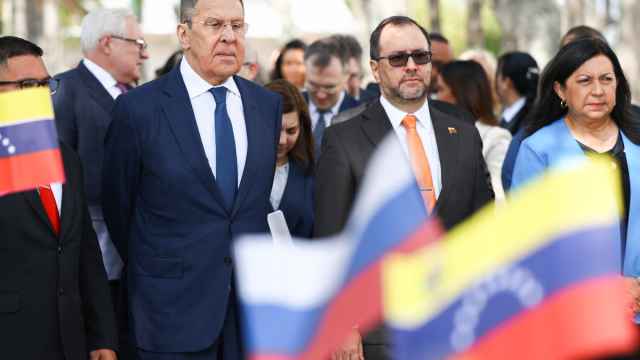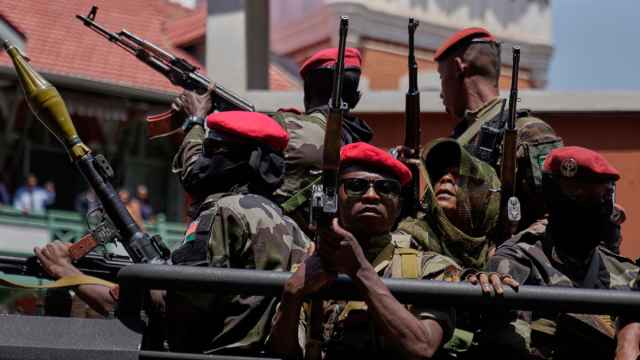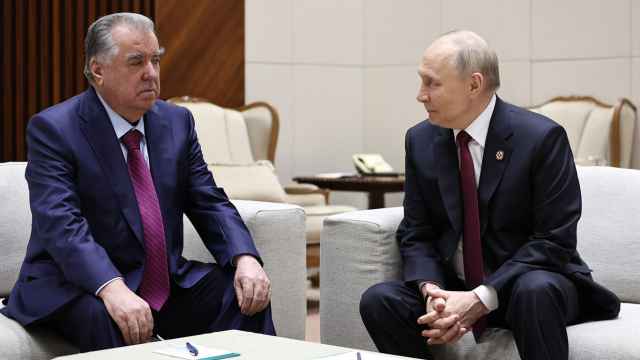Some of the world's biggest oil traders see little risk of any disruption to supplies from Russia, they said Tuesday, despite the worst East-West crisis since the Cold War.
The annexation of Ukraine's Crimea region was unlikely to lead Western powers to target Russian energy exports directly or to prompt retaliatory supply cuts from Moscow, trading house executives and co-owners told the FT Commodities Summit.
"Some of us are old enough to remember the end of the Cold War days," said Ian Taylor, the head of the world's largest independent oil trader, Vitol. "In the energy space, gas and oil have tended to continue to flow because it is in the interest of both sides that they continue to do so."
Oil prices have been supported by the crisis after the U.S. and the European Union imposed sanctions on some Russian government officials and businessmen loyal to President Vladimir Putin.
Russia is the world's second-largest oil exporter after Saudi Arabia and is a major grains and metals exporter.
"I am pretty confident there will be no interruption on energy flows from Russia to Europe. It has not happened in the last 40 years," said Christopher Delbruck, the head of the global commodities division of Germany's E.ON and one of the biggest buyers of Russian gas.
Taylor said he was more concerned about instability in the Middle East and the almost complete loss of supplies from Libya, where exports have fallen to less than 100,000 barrels per day from a post-civil war peak of more than 1 million bpd.
Brent crude oil prices briefly spiked to this year's high above $112 a barrel at the start of March, but have since eased to about $107 a barrel.
Trading house Gunvor CEO Torbjorn Tornqvist, who bought out Russian co-founder Gennady Timchenko two weeks ago, shortly before Timchenko was hit with U.S. sanctions, said there had been no impact on his company.
"It is business as usual at Gunvor … Russians are very pragmatic," Tornqvist said. "Business and politics are much less integrated than you may think … The current crisis will be contained."
Bargaining Power
Marco Alvera, senior executive vice president at Italian oil major Eni, also a major buyer of Russian gas, said he was concerned about risks of potential gas supply disruptions as Europe depended on Russia for 30 percent of its gas demand.
"Certainly shale gas is something Europe should do, as opposed to resist. And we probably need to convince some of our suppliers that if gas prices do not come down, demand will disappear," he said.
"Every new coal-fired power plant in Europe means fewer Russian jobs for decades. Europe collectively is in a stronger bargaining position than we think," he added.
He also said he did not believe Ukraine had enough shale or conventional gas reserves to shift the energy balance in Europe and drastically cut reliance on Russia in the long run.
"There is shale gas in Ukraine. The cycle to bring it to production is three to four years. There is also conventional gas. There are opportunities for conventional gas in Ukraine that were planned to be exploited before the crisis," he said.
A Message from The Moscow Times:
Dear readers,
We are facing unprecedented challenges. Russia's Prosecutor General's Office has designated The Moscow Times as an "undesirable" organization, criminalizing our work and putting our staff at risk of prosecution. This follows our earlier unjust labeling as a "foreign agent."
These actions are direct attempts to silence independent journalism in Russia. The authorities claim our work "discredits the decisions of the Russian leadership." We see things differently: we strive to provide accurate, unbiased reporting on Russia.
We, the journalists of The Moscow Times, refuse to be silenced. But to continue our work, we need your help.
Your support, no matter how small, makes a world of difference. If you can, please support us monthly starting from just $2. It's quick to set up, and every contribution makes a significant impact.
By supporting The Moscow Times, you're defending open, independent journalism in the face of repression. Thank you for standing with us.
Remind me later.





